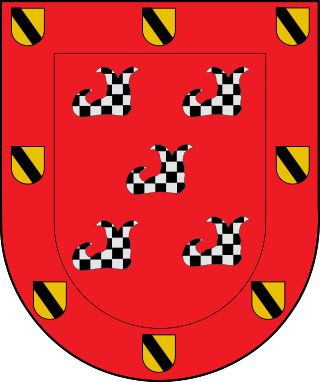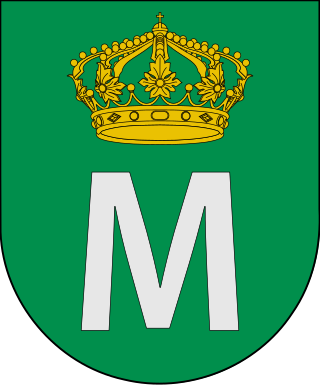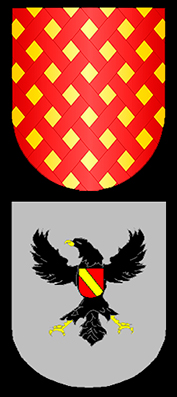See also
- Soutomaior, a municipality in Galicia, Spain
- Souto Maior (disambiguation)
- Soutomayor, a town in Santa Fe Province, Argentina
Sotomayor is a Galician surname. Notable people with the surname include:
Estrada is a Spanish surname and a Galician and Portuguese term, meaning "paved road".
Calderón is a Spanish and Sefardi occupational surname. It is derived from the Vulgar Latin "caldaria" ("cauldron") and refers to the occupation of tinker.

Maldonado is a Spanish surname. Notable people with the surname include:
Jose Alvarez or José Álvarez may refer to:
Álvarez is a Spanish surname of Germanic origin, a patronymic meaning "son of Álvaro". Notable people with the surname include:
Barros is a Portuguese and Galician surname. It may refer to:

Fernando Álvarez de Sotomayor y Zaragoza was a Galician (Spanish) painter.
Peláez is a surname of Spanish origin. It is first found in Asturias, where the Visigothic court took refuge from the Muslim occupation of Spain. It may refer to:

Lobo is a surname found in the Galician, Spanish and Portuguese languages meaning "wolf", and in other languages with other meanings. Notable people with the surname include:
Salgado is a Galician and Portuguese surname.
Ocampo is a surname of Galician origin. It derives from a common Galician toponym meaning 'the field', from the Galician definite article o + campo 'field', or a habitational name, from a town of the same name in Lugo, Galicia.

Guedes is a Galician–Portuguese surname. Notable people with the surname include:
Vigil is a Spanish surname.

Zapata is a Spanish surname. Notable people with the surname include:
Fernando Alvarez may refer to:

Montenegro is a surname of Galician origin, later spreading to other parts of Spain and Portugal.
Ferreiro is a surname of Galician-Portuguese origin, equivalent to English Smith. Notable people with the surname include:

Correa is a Spanish surname. Correa is found throughout the Iberian Peninsula. Correa means 'leather strap', 'belt', 'rein', 'shoelace', plural correas. Correa is from the Latin corrigia 'fastening', from corrigere 'to straighten', 'to correct'), applied as a metonymic occupational name for a maker or seller of such articles. Correa is spelt Correia in Portuguese and Galician.
Barragán, or Barragan in English-speaking countries, is a Spanish surname of Galician origins, from where they went to Extremadura, Spain, and even into Alentejo and Estremadura, in Portugal, where the surname was changed into Barragano, Barregano, Barregão, Barregoso, Barregosa (feminine), Varregoso, Varregosa (feminine).
Novoa or Nóvoa is a Galician surname that later became widespread in the Spanish-speaking world. It is a toponymic surname referring to the former juridical district of Terra de Nóvoa, in the Ourense province, Galicia. The Spanish variation of the surname is Noboa.